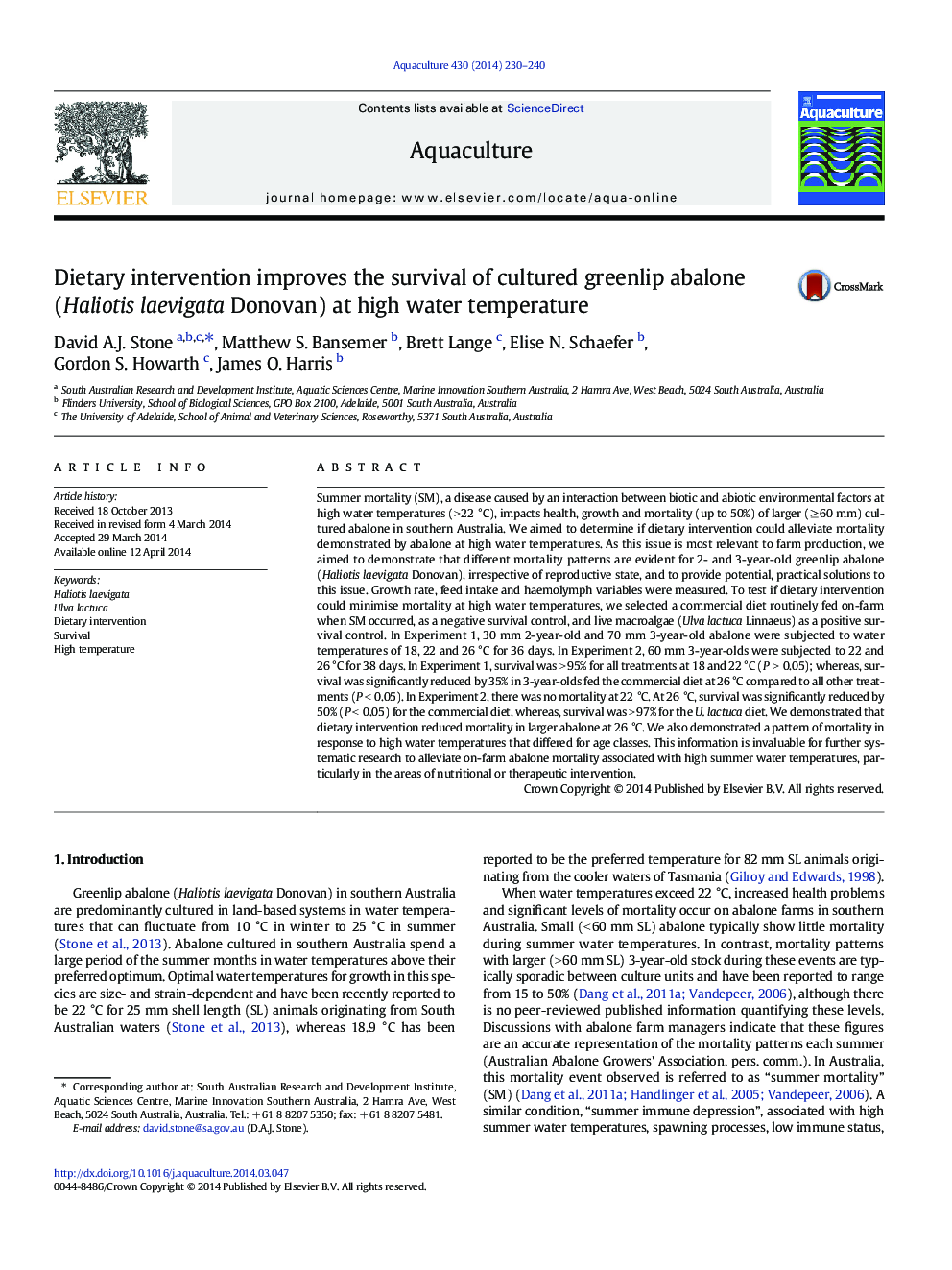| Article ID | Journal | Published Year | Pages | File Type |
|---|---|---|---|---|
| 2421837 | Aquaculture | 2014 | 11 Pages |
•Dietary intervention may alleviate mortality of abalone at high water temperatures•Survival patterns in this study similar to what occurs on farm
Summer mortality (SM), a disease caused by an interaction between biotic and abiotic environmental factors at high water temperatures (> 22 °C), impacts health, growth and mortality (up to 50%) of larger (≥ 60 mm) cultured abalone in southern Australia. We aimed to determine if dietary intervention could alleviate mortality demonstrated by abalone at high water temperatures. As this issue is most relevant to farm production, we aimed to demonstrate that different mortality patterns are evident for 2- and 3-year-old greenlip abalone (Haliotis laevigata Donovan), irrespective of reproductive state, and to provide potential, practical solutions to this issue. Growth rate, feed intake and haemolymph variables were measured. To test if dietary intervention could minimise mortality at high water temperatures, we selected a commercial diet routinely fed on-farm when SM occurred, as a negative survival control, and live macroalgae (Ulva lactuca Linnaeus) as a positive survival control. In Experiment 1, 30 mm 2-year-old and 70 mm 3-year-old abalone were subjected to water temperatures of 18, 22 and 26 °C for 36 days. In Experiment 2, 60 mm 3-year-olds were subjected to 22 and 26 °C for 38 days. In Experiment 1, survival was > 95% for all treatments at 18 and 22 °C (P > 0.05); whereas, survival was significantly reduced by 35% in 3-year-olds fed the commercial diet at 26 °C compared to all other treatments (P < 0.05). In Experiment 2, there was no mortality at 22 °C. At 26 °C, survival was significantly reduced by 50% (P < 0.05) for the commercial diet, whereas, survival was > 97% for the U. lactuca diet. We demonstrated that dietary intervention reduced mortality in larger abalone at 26 °C. We also demonstrated a pattern of mortality in response to high water temperatures that differed for age classes. This information is invaluable for further systematic research to alleviate on-farm abalone mortality associated with high summer water temperatures, particularly in the areas of nutritional or therapeutic intervention.
